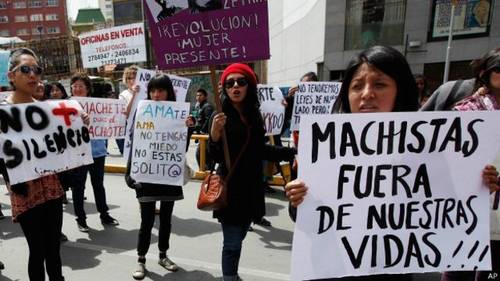

There is no better working environment than that of like-minded Latinas who share the same principles of making a positive impact and reducing racism, sexism, and homo/transphobia in our shared communities. There is empowerment just being in the presence of other strong Latinas who make it their life’s mission to help improve the living conditions of others around them.
There are many approaches to working towards social justice and it seems that every little bit of that progressive work should be looked upon with collective respect and appreciation. But often, the good intentions of those who dedicate their time and effort to social justice work are met with skepticism and suspicion by the very community of people they’re trying to help. We refer to the most extreme cases of this as the “crabs in the bucket” mentality, “if I can’t have it, neither can you”. This is even more troubling when that mentality comes from other Latinas, particularly our Latina elders.
Generational differences have often caused riffs within local social justice movements. It seems more effort is spent trying to convince Latina elders that we have our own creative methods for accomplishing goals, and that our work really is about the long-term health and safety of our community. But some of our elders, or the old guard, become overly critical because another Latina’s approach isn’t how they would’ve done it, therefore calling into question the sincerity and validity of the work being done. If only their effort went towards dealing directly with the problems of our communities instead the barrage of judgment.
I have worked in Latino-led organizations where the machismo was obvious, rampant, and stifling, causing great harm to the Latinas working there. Young Latinas trying to make big progressive moves while Latino men shouted cries of “Latinas trying to take over!”. Did the Latina elders aid in the efforts of their younger Latina colleagues? No. Instead, they questioned and doubted every move they made, while trying to ensure that men’s egos were considered and placated, not realizing that they themselves were deliberately pitted against women, and even exploited by these men. It is the perfect example of how deeply embedded machismo lives in many of our Latina elders.
I have often wondered how Latina elders could constantly confront the efforts of strong Latina women trying to challenge machista culture in a male-dominated environment but give so little effort to confronting their male-colleagues blatant misogyny and homophobia. Their constant critique accomplishing nothing constructive but to sow seeds of discord and doubt, even discouraging young Latinas from fully engaging in social justice work.
I experienced toxic Latina elder machismo as a young naïve social justice worker, and I hope to warn young Latinas today not to buy into the overly critical judgements of the elders who think they know better and offer little more than criticism. You work at a pace that agrees with you. You be as creative and innovative as you want to be. You speak your mind as you know you can. Feel good about the fact that all the positive change you’re trying to bring to your community was sincerely done and given from a beautiful place in your heart. Nobody should criticize your genuine efforts to create purposeful change in our communities, because ultimately, we know you don’t owe us that effort. Many of us fully appreciate any and all effort given to create equity and uplift our communities. And how you do that is up to you! Find Latina mentors that encourage, support, and provide constructive guidance, and take with a grain of salt those that try to cloud your work.
Hey Latinas, particularly of the older generation, if you’re spending more time questioning and criticizing other Latinas about their social justice work, as opposed to calling out machista men about how their misogyny harms Latinas, you may want to examine your own internalized machismo. At the very least, stop making assumptions, ask and then listen to what other Latinas have to say first. You may be surprised that their way of fighting for our communities is just as, if not more, effective than the way you fought for our communities way back when. There is room for each of our creative approaches to bringing equity to nuestra gente.
Posted March 16, 2022
We use cookies to improve your experience on our website. By browsing this website, you agree to our Privacy Policy.
x